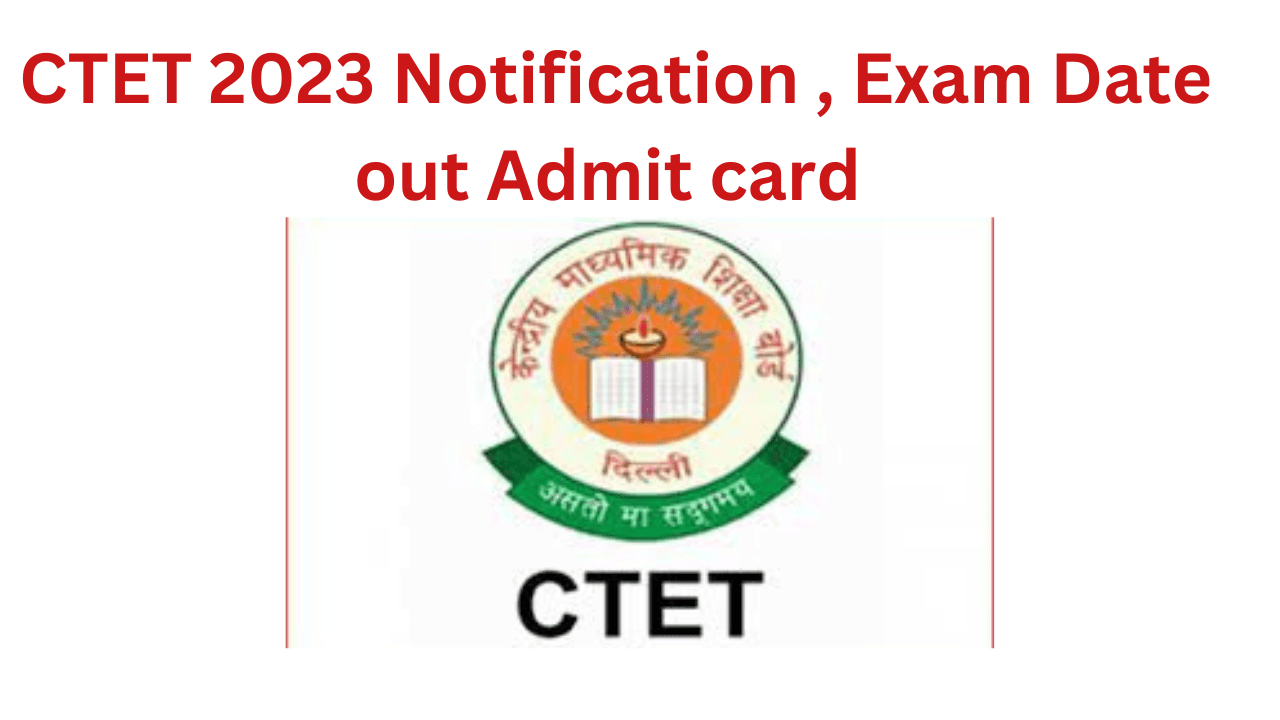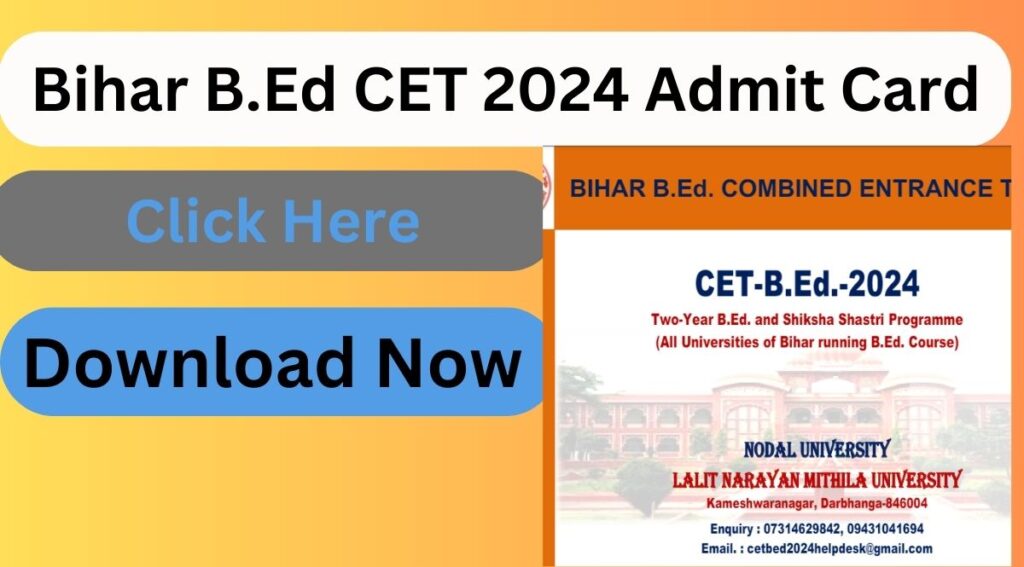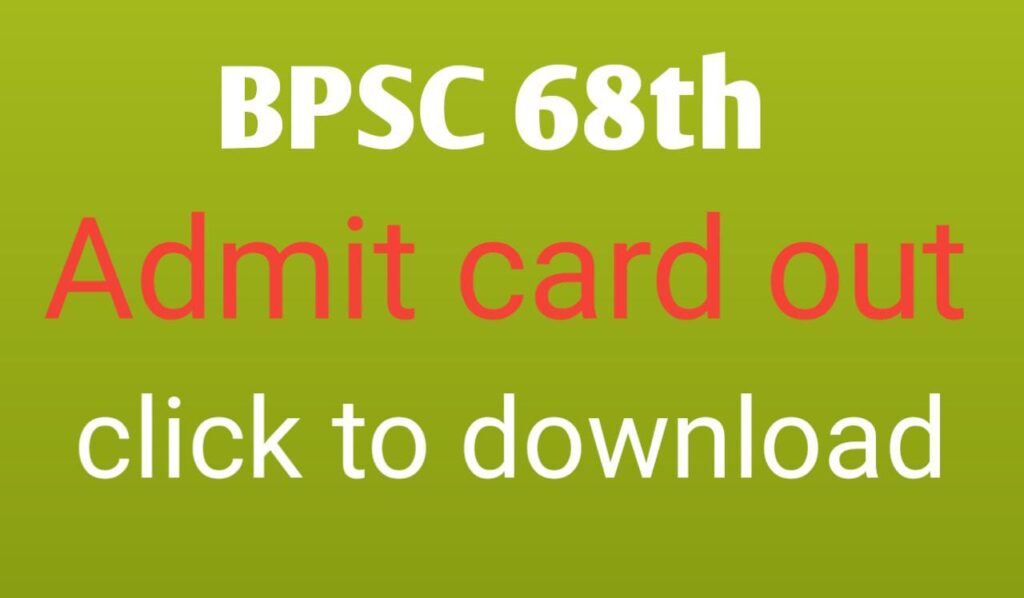The Central Teacher Eligibility Test (CTET), which is required of candidates seeking employment as teachers in the public sector, will be held twice in 2023. The CTET Exam will now be administered offline by the CBSE. The CTET Exam, now in its 17th edition, is used to determine if applicants are qualified to become teachers. Candidates who want to advance their careers in the teaching field for elementary and upper primary classrooms must pass the CTET Exam. Candidates can apply for numerous openings in various government and government-aided schools based on their CTET Exam results. On Sunday, August 20, 2023, CBSE will administer CTET 2023 in offline mode (pen-paper OMR-based).

Exam CTET 2023
To ascertain a candidate’s eligibility for teacher positions at Central Government Schools like NVS/KVS and other Schools, etc., the Central Teacher Eligibility Test (CTET) is administered. The CTET will now be conducted offline.The CTET’s validity has been increased to lifetime.To learn the precise date and other pertinent information regarding the CTET 2023 test, it is vital to go to the official announcement. Candidates are chosen through the CTET Exam in states without TET exams.
CTET 2023 Notification out
At the official website www.ctet.nic.in, CBSE has posted the PDF version of the CTET 2023 Notification. The whole CTET 2023 Notification has been made available in PDF format and includes the application procedure, eligibility requirements, dates, exam structure, syllabus, results, and more.For the most current and recent information on the CTET 2023 notification, it is advised to visit the official CTET website or the CBSE website. The whole procedure for the CTET 2023 July exam has been published in the CTET Notification 2023, which may be obtained from the link below.
CTET 2023 Exam notification details
| Exam | CTET |
| Exam | Central Board of Secondary Education (CBSE) |
| Exam Level | National |
| Exam Mode | Offline (OMR Based) |
| Exam Date | 20th August 2023 |
| Exam Duration | 150 minutes |
| Paper Language | English and Hindi |
| Exam Purpose | appointment as teachers in Classes 1-8 |
| Eaxm Center | All India |
| Help desk | 011-22235774 , ctet.cbse@nic.in |
| Official Website | www.ctet.nic.in |
CTET 2023 Exam notification importent date , link
| CTET 2023- Important Dates , link | |
| Events | Dates |
| CTET Notification 2023 | 27th April 2023 |
| CTET Application Form 2023 Starts From | 27th April 2023 |
| Last Date to fill Online Application | 26th May 2023 (11:59 pm) |
| Last Date for submission of fee | 26th May 2023 (11:59 pm) |
| Online Correction Schedule | 29th May to 02nd June 2023 |
| CTET Admit Card 2023 out | August 2023 (1st week) |
| CTET Exam Date 2023 | 20th August 2023 |
| CTET Result 2023 out | By end of September 2023 |
| CTET Official Website | www.ctet.nic.in |
CTET 2023 Exam syllabus
Every question on the CTET will be a multiple-choice question (MCQ), with four possible answers, only one of which will be the best. There will be one mark on each, and no negative markings.
Paper 1
Paper I (for Classes I to V) Primary Stage; Duration of examination-Two-and-a-half hoursStructure and Content
| SUBJECT | NO OF QUESTION | MARKS |
| Child Development and Pedagogy (compulsory) | 30 MCQs | 30Marks |
| Language I (compulsory) | 30 MCQs | 30Marks |
| Language II (compul sory) | 30 MCQs | 30Marks |
| Mathemati cs | 30 MCQs | 30Marks |
| Environmental Studies | 30 MCQs | 30Marks |
| Total | 150 MCQs | 150 Marks |
Paper II (for Classes VI to VIII) Elementary Stage: Duration of examination – Two-and-a-half hoursStructure and Content
| SUBJECT | NO OF QUESTION | MARKS |
| Child Development and Pedagogy (compulsory) | 30 MCQs | 30Marks |
| Language I (compulsory) | 30 MCQs | 30Marks |
| Language II (compul sory) | 30 MCQs | 30Marks |
| Mathematics and Science (for Mathematics and Science teacher) | 60 MCQs OR | 60 Marks |
| Social Studies/Social (for Social Studies/Social Science teacher) | 60 MCQs | 60 Marks |
| Total | 150 MCQs | 150 Marks |
STRUCTURE AND CONTENT OF SYLLABUS
Paper I (for classes 1 to V) Primary Stage
. Concept of development and its relationship with learning
• Principles of the development of children
• Influence of Heredity & Environment • Socialization processes: Social world & children (Teacher, Parents, Peers) • Piaget, Kohlberg and Vygotsky: constructs and critical perspectives
• Concepts of child-centered and progressive education
• Critical perspective of the construct of Intelligence
• Multi-Dimensional Intelligence
• Language & Thought
• Gender as a social construct; gender roles, gender-bias and educational practice
• Individual differences among learners, understanding differences based on diversity of
language, caste, gender, community, religion etc.
• Distinction between Assessment for learning and assessment of learning; School-BasedAssessment, Continuous & Comprehensive Evaluation: perspective and practice
• Formulating appropriate questions for assessing readiness levels of learners; for enhancinglearning and critical thinking in the classroom and for assessing learner achievement
Concept of Inclusive education and understanding children with special needs
Addressing learners from diverse backgrounds including disadvantaged and deprived
• Addressing the needs of children with learning difficulties, „impairment‟ etc.
• Addressing the Talented, Creative, Specially abled Learners
Learning and Pedagogy
How children think and learn; how and why children “fail‟ to achieve success in school
performance.
• Basic processes of teaching and learning; children’s strategies of learning; learning as asocial
activity; social context of learning.
• Child as a problem solver and a “scientific investigator‟
• Alternative conceptions of learning in children, understanding children’s “errors” as significant
steps in the learning process.
• Cognition & Emotions
• Motivation and learning
• Factors contributing to learning – personal & environmental
Language I
Language Comprehension
• Reading unseen passages – two passages one prose or drama and one poemwith questionson comprehension, inference, grammar and verbal ability (Prose passage may beliterary, scientific, narrative or discursive)
Pedagogy of Language Development
• Learning and acquisition
• Principles of language Teaching
• Role of listening and speaking; function of language and how children use it as a tool
• Critical perspective on the role of grammar in learning a language for communicatingideasverbally and in written form
• Challenges of teaching language in a diverse classroom; language difficulties, errorsanddisorders
• Language Skills
• Evaluating language comprehension and proficiency: speaking, listening, reading andwriting
• Teaching- learning materials: Textbook, multi-media materials, multilingual resourceof theclassroom
• Remedial Teaching
ये भी पढ़े
Concept of Health | स्वास्थ्य की अवधारणा
Principles of Motor Development | क्रियात्मक विकास के नियम

